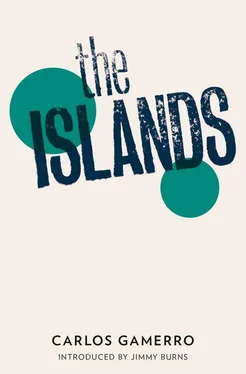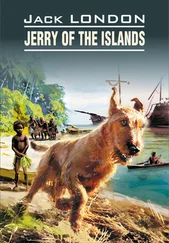‘There are those that experience only destroys. Totally. Longing to redeem the intolerable past, they relive it, but worse. One puff from the world blows them out like a candle flame.’
‘How did he find Cuervo? That’s what he isn’t telling us. That’s where he fucked up our plan.’
‘Let me do the talking. Félix. Can you hear me, Félix?’
Of course, of course, my whole skin a sensitive eardrum responding to the slightest vibration of the air, but even if you slide in the tip of the knife, crack the oyster in two and delve into the soft flesh, there’s something in that mess of your own making that you can slice to pieces and break down, but you’ll never find. Plunge your arms in up to your elbows, try to get hold of it, and it will slip through your fingers, you’ve broken the egg on the floor and now you try to pick it up with your hand, you can’t, you can’t, ha ha ha, you can’t …
‘Let him go. He can’t take any more than this. The morphine, Félix. Concentrate on the morphine. How did you find Cuervo.’
My teeth tried to find each other like magnets, steady side by side, they emerged through the torrent of flesh in two neat rows.
‘He’s laughing at us. Didn’t I tell you? He’s laughing in our fucking faces.’
Pincer fingers squashed the wings of my nose and my lungs filled with fire. As I opened my mouth absurdly wide to gulp down the air of the world, an avalanche of used capsules wrapped in a burning cloud of gunpowder fell into my mouth and my lungs filled like the bag of a vacuum cleaner. Canal — it had to be — had emptied an ashtray into my open mouth.
‘With the morphine, Félix,’ his shredded voice fought its way through the thicket of torn bronchi, retching, coughing and asphyxia. ‘Those fag ends will soothe your throat like butterscotch. The ash like fresh water. So tell us, Félix.’
He had difficulty opening my eyes: my eyelids seemed to have sealed over. The direct light crossed them and my whole body shone visible like an illuminated glassworks.
‘If I want to know, I will know. Nothing escapes my sight,’ said one eye set in glass.
Nothing, let alone me, this microscopic crustacean trapped between two slides in a thin film of water, blinded by a light so intense that it makes my body transparent, everything, every organ, every cell, entirely on view, uselessly waving my little legs in the water until I give up and keep still, my black eye perplexed in the burning light, not knowing which way to look. Daphnia. Black eyes that can’t blink. Nowhere to escape to, in a suddenly 2D universe. The best thing is not to move, to do all you can to still the vibration of agitated gills, to control the tics of a few limbs accustomed to perpetual motion. It’s difficult to observe a living organism. You have to freeze it somewhere, fix it with resins and stain it with dyes, immobilise it forever between two glued slides. Maybe if I don’t move, he’ll believe this is what I am. Maybe if I don’t move, he’ll take me for some preparation or other.
‘Who told you about Cuervo, Félix.’
It’s useless. Through the transparent flesh of which light is master, a tiny opaque stain that refuses to keep still gives me away. I can see it, as clear as a cardiologist holding it in his hand during a transplant: my dark, beating heart. You can see it, but not what I’m hiding there. The light that makes my brain’s every neuron transparent cannot pierce it. Not you, nor you, nor him, nor him; I’m the only one who can see inside — only I, I, I …
‘I.’
‘I what?’
‘I recognised him. He got us … ex-combatants … selling Surprise,’ I managed to say. I felt like I was floating close to the sun.
‘Do you believe him?’
‘I don’t know. It makes sense. You know Cuervo could never keep his mouth … Good thing we shut it for him in time.’
‘What if he’s lying?’
‘It doesn’t affect us anyway. I was just curious.’
‘What shall we do?’
‘Let him go, I suppose. Another body would complicate our script.’
‘What came next?’
‘The champagne. Let’s go. Fetch the chalice. Goodbye, Félix. I hope life doesn’t keep putting you in situations where you’re out of your depth.’
‘The morphine! The morphine!’ I screamed, but they weren’t listening any more, or perhaps my voice didn’t make it out. Theirs deliberated as they receded, and in mercy or economy, one of them turned out the lights. Clods of dark thudded against my wooden head. I would have liked to sleep, but the pain wouldn’t allow me. I could feel it growing inside, getting bigger with every beat of my heart, fighting for the surface like a diver with lungs about to burst. None of the other pains, the ones they’d inflicted on me, could compare with this; they’d only been containing it. Trying to escape it, I opened my eyes to the outside world. Instead of the scorched earth of my outstretched body, like a satellite photo of a bombardment, my eyes encountered a clean, cold sky full of stars: when they’d turned off the lights, they’d turned off the mirrors as well. That did it. Lost in the vision of the sky, my body began to spread out like a drop of oil on water. My skin stretched to the horizon and, in the cold wind coming in through the broken window, it began to bristle with buildings, houses, trees, cars, pedestrians; railway tracks ran over me in long scars, grids of streets and motorways cut through the rubble; it exhaled exhaust fumes and exuded the sweat of millions through the cement, screamed with horns and sirens and televisions and refrigerators, and screeching buildings under construction, one after another on my chest, till I could no longer breathe, compressing the air in the underground tunnels and the currents of the sewers and piped rivers. The city’s thick carapace of tarmac and cement had protected me, and I’d thought that, beneath that crust, the edges of the wound would have joined, but instead they’d only separated even further and the pain had never stopped flowing through the strait. Ten years I’d slept under the uncertain shelter of the city of pain and now I awoke naked under the lone brightness of the stars. The farce was over. At that moment a giant hand descended from the sky and lifting up one corner, like someone getting ready to pull off a plaster, it tore off the skin of the city to reveal the desolate heath beneath: the windswept pastures, the streams of stone, the rocks and mud and bogs of the Islands.
Chapter 15. THE BATTLE OF MOUNT LONGDON
The sky above fumes with stars, but at ground level the darkness is impenetrable, as if we were covered by a cloud of ink; it’s easier to decipher the constellations than the lines on our palms. Our ears have become so used to the continuous whispering of the wind that in its absence any noise shatters the icy silence with the crash of breaking glass; the snowfall is heralded by the paralysing cold of the air. Hugging Carlitos to keep him warm, I count the beats of his heart like seconds, as if my counting were keeping it going — one more, one more, one more — subtracting them from the thousands left before the coming of daylight. If he makes it through the night, we can get him to the campaign hospital at the foot of the hill, or even to the post at Moody Brook, but the night is only just starting. Next to us Chanino twitches and shudders like a dog in his sleep; Rubén, his head covered by his jacket and a blanket, next to the possibly dead body of Hijitus, occupies the other end of the foxhole. I’m the only one who pokes his head out now and then; you could say I’m keeping guard, watching over everyone, although my eyes can see no more in the night out there than theirs can in the depths of our cave. I’ve been hearing low, indistinct voices for some time, but even when I prick up my ears, I can’t make out what they’re saying. It takes me a few minutes to work out why. By then the first clickety-clack has reached me and immediately a series of dozens of clacks intermingled, like somebody gingerly looking for something in a cutlery drawer, trying not to waken those sleeping. I feel my pupils open as wide as saucers, only to fill with more darkness. The strangely familiar noise has woken Chanino too.
Читать дальше











